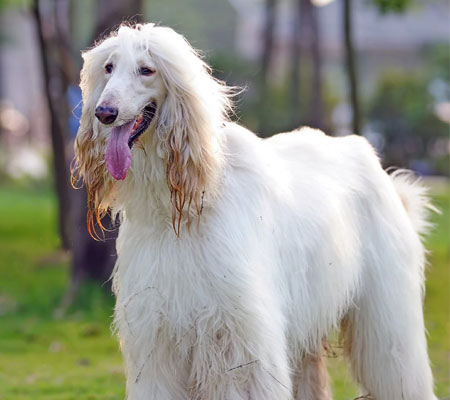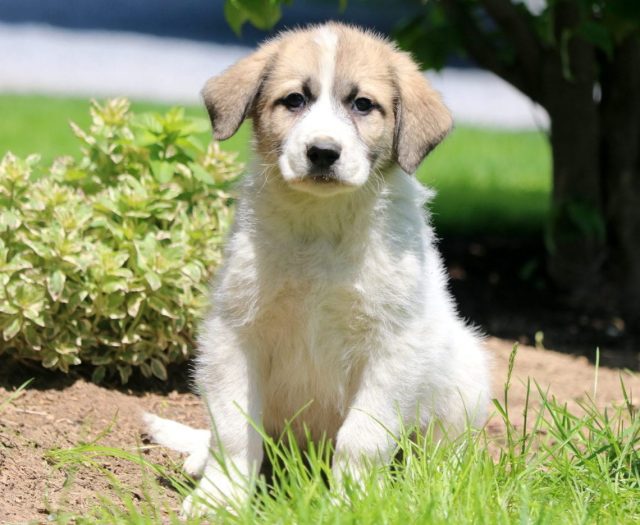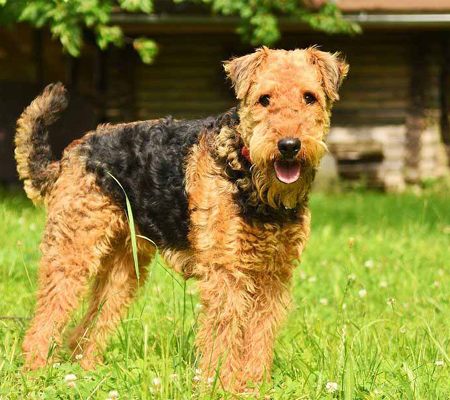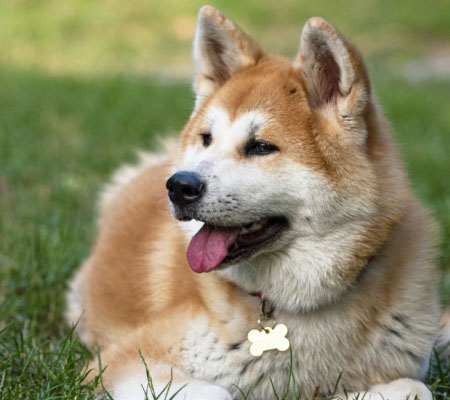Also as the "barkless" dog from Africa, the Basenji attracts admirers with his quick coat, small, muscular body, alert demeanor, erect ears, and tail curled tightly over one hip. A wrinkled forehead offers him a quizzical and on occasion mischievous expression.
The Basenji is noticeably intelligent, however he has a cussed streak a mile wide. The Basenji is acknowledged for no longer barking, however that does not imply he is silent. His vocalizations vary from a pleasant yodel to a hair-raising scream, as properly as the traditional growls, whimpers, and whines made by using all dogs.
Basenji Highlights
Breed Size
Small
Nature
Gentle, Willful, Aloof, Friendly
Energy Level
Hyper
Intelligence
High
Barking Level
When Necessary
Coat Length
Short, Medium, carly
Breed Group
Hound
Droll Amount
Low
Good with
Familes, Children, Dog
Feed Level
Medium, High
Colour Type
Red, Black, White
Other Facts
Other Traits - Easy to groom, Tendency to chew, High prey drive, Apartment-friendly
Basenji Dog History
Basenjis had been located by using Westerners in the Congo vicinity of West Africa in the nineteenth century. There, the puppies had been used to flush sport into nets, to carry goods, and to warn of the method of unsafe animals when on the trail. A appropriate looking Basenji was once valued extra than a spouse by using some tribes in Africa, now not solely for his looking ability however additionally his resourcefulness and ingenuity.
Attempts to carry the Basenji to Europe failed at first due to the fact the imported puppies all died of disorder quickly after arrival. The first profitable importation befell in the Nineteen Thirties each in England and the United States.
The Basenji Club of America was once shaped in 1942, and the American Kennel Club identified the breed in 1943. Phemister's Bois was once the first Basenji registered with the AKC, in 1944.
14-18 inch 8-14 kg 10-13 year
Height

Weight

Life Span
Basenji Dog Behaviour
- Basenjis is alert, energetic, curious and reserved with strangers.
- Basenjis tends to grow to be emotionally connected to a single human.
- Basenjis may additionally no longer get alongside with non-canine pets.
- Basenjis dislike moist weather, tons like cats, and will frequently refuse to go backyard in any kind of damp conditions.
- They like to climb, and can without problems scale chain wire/link fences.
- Basenjis commonly do now not bark, however they can be very noisy, making sounds that encompass yodels, whines, and screams.
- Basenjis have a excellent deal of energy. If now not furnished with stores for this they will come to be detrimental or discover different approaches to burn off energy. Crating is recommended when no longer supervised.
- Basenjis reflect onconsideration on themselves family. They can't be left in a yard with meals and water. They require a top notch deal of time and attention.
- Basenjis are stubborn, and you should cease up with a pressured and aggressive Basenji if you strive to overcome his stubbornness with force.
Basenji Dog Health and Care
Health
The Basenji is regarded an average wholesome breed with a lifespan of 13–14 years. Like all breeds, the Basenji is inclined to positive diseases. The Basenji Club of America, the authentic breed club, requires registered breeders to check for hip dysplasia, autoimmune thyroiditis, Fanconi syndrome, revolutionary retinal atrophy (PRA), and whole an annual thorough eye examination (owners ought to proceed this till age 6, then each two years thereafter).
- Additional Basenji fitness troubles to be conscious of—and speak to your breeder or rescue league about—are:
- Basenji enteropathy: An inflammatory bowel ailment that motives continual diarrhea and vomiting.
- Persistent pupillary membranes (PPM): Strands of tissue in the eye. Although they commonly do not have an effect on the pup, they can now and again intrude with vision.
- Immunoproliferative small intestinal ailment (IPSID): This is a risky circumstance that motives diarrhea and vomiting. Over time, the canine can turn out to be emaciated and weak. There is no cure, however cure is possible.
- Coloboma: When phase of the eye does not improve properly.
- Pyruvate kinase deficiency (PKD): A sickness the place the pup's purple blood cells do not produce strength properly, main to low power levels, jaundiced skin, and, eventually, liver failure.
Care
The Basenji is a looking canine and wants day by day exercise. Some Basenjis do exceptional with a each day walk, whilst others require greater enthusiastic types of exercise.
Basenjis raised with youngsters frequently will spend their time carrying every different out.
The Basenji is no longer a canine who can be left unattended in the backyard. He's an done get away artist, and an unwatched Basenji will quickly end up a missing Basenji. If you can supply him with a couple of 30-minute walks or play periods each day, he is properly suitable to rental or rental life. Always keep your Basenji on leash except you are in a securely fenced area, and do not be counted on any kind of fence to preserve him confined. He'll use chain hyperlink as a ladder, and a wooden fence is a deterrent solely if you suppose to put the clean aspect dealing with the yard the place the canine is and then pinnacle it with an electric powered wire.
Another tom cat attribute of the Basenji is his dislike of rain. Expect him to be grumpy if you stroll him when it is moist out. The solely time he may enjoy getting moist is on a actually warm day.

Basenji Dog Feeding
Recommended each day amount: 3/4 to 1 cup of notable dry meals a day, divided into two meals.
NOTE: How tons your grownup canine eats relies upon on his size, age, build, metabolism, and pastime level. Dogs are individuals, simply like people, and they don't all want the equal quantity of food. It nearly goes besides pronouncing that a quite energetic canine will want extra than a sofa potato dog. The pleasant of dog meals you purchase additionally makes a distinction — the higher the canine food, the similarly it will go towards nourishing your canine and the much less of it you may want to shake into your dog's bowl.
With his gently constructed body, frequently likened to that of a deer, the Basenji is sick applicable to raise excess weight. In different words, do not let him get fat. Keep your Basenji's physique smooth with the aid of measuring his meals and feeding him twice a day as a substitute than leaving meals out all the time. Giving him lots of each day exercise have to do the rest. If you are undecided whether or not he is overweight, supply him the hands-on test. Place your fingers on his back, thumbs alongside the spine and the fingers unfold downward. You ought to be in a position to sense however no longer see his ribs. If you cannot sense the ribs, he desires a little much less meals and a lot more exercise.
Basenji Dog Fun Facts
- Basenjis are notion to be the proposal for the photograph of Anubis, the Egyptian god of mummification and the afterlife.
- Basenjis are nearly cat-like in the way they self-groom, which continues their short-haired coat almost odorless and clean.
- Rather than a normal yip, Basenjis make yodeling noises.
- In historic times, Basenjis had been introduced up the Nile from central Africa as items for the Egyptian pharaohs.
- Basenjis have been used via central African tribesmen as prized searching dogs.
Basenji Unique Name
| Male Name | Female Name |
|---|---|
| Boomer | Alyssa |
| Brutus | Anna |
| Chance | Baxter |
| Duke | Carly |
| Kobe | Gemma |
| Leroy | Honey |
| Logan | Jenna |
| Mickey | Lulu |
| Noah | Mandy |
| Odin | Mila |
| Parker | Peaches |
| Prince | Sissy |
| Rebel | Snickers |
| Sarge | Tootsie |
| Simba | Willow |
| Smoky | Zoe |
| Sparky | Blanche |
| Tripp | Chaos |
| Vinnie | Codi |
| Ace | Blu |





